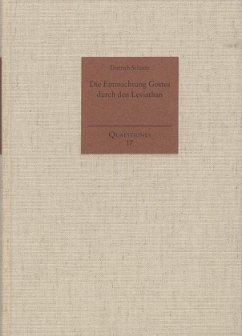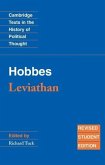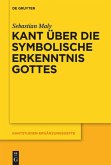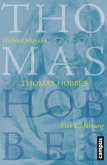This book contains the first complete interpretation of all aspects of Hobbes's (1588-1679) philosophy which treat religious convictions and practices. Not only his philosophy of religion and his philosophical theology, but also his biblical theology are treated in extense. The main thesis is that, according to Hobbes, neither philosophy nor politics in any way need a religious fundament; but since religions establish institutions and thus accumulate means of power, they are necessarily an object of politics. It is for this reason that religious convictions and practices are a - for a long time neglected - main topic of Hobbes's philosophy.Schotte's book was awarded as best PhD-thesis of the Philipps-University of Marburg 2011 in the section Philosophy and Cultural Studies.
»Mit dieser exakten Herausarbeitung von Hobbes' provokanten Thesen zum Verhältnis von Politik und Religion hat S. ein Hauptthema dieses Klassikers neuzeitlicher politischer Philosophie nicht nur wieder in den Fokus gerückt, sondern in allen Einzelheiten erworgen und damit zu Recht gängige Interpretationen zurückgewiesen.« Wolfgang Erich Müller, Theologische Literaturzeitung »Denn Schottes Buch darf als neues Standardwerk zu Hobbes bezeichnet werden, das jeder gründlich lesen muß, der an einer sachlich angemessenen Auslegung des Philosophen interessiert ist. Die Arbeit sollte deshalb ohne Frage in Bibliotheken für Politikwissenschaftler, Philosophen, Theologen und Anglisten, die sich in der einen oder anderen Weise mit Hobbes befassen, vorhanden sein - und sorgfältig studiert werden!« Till Kinzel, Informationsmittel für Bibliotheken »Das brisante Verhältnis von Politik und Religion, das Machiavelli als Problem erkannt hat, erfährt mit Hobbes' 'Leviathan' eine radikale Neubestimmung. Ihm widmet Dietrich Schotte eine umfangreiche und gründliche Untersuchung und schließt damit eine Lücke in der neueren Hobbes-Literatur. [...] Es ist das Verdienst der Studie, die wenig beachteten Kapitel über die politische Funktion der Religion so erschlossen zu haben, dass der Blick frei wird für eine konsistente Interpretation der Machtpotentiale innerhalb des Staates.« Georg Zenkert, Philosophische Rundschau








